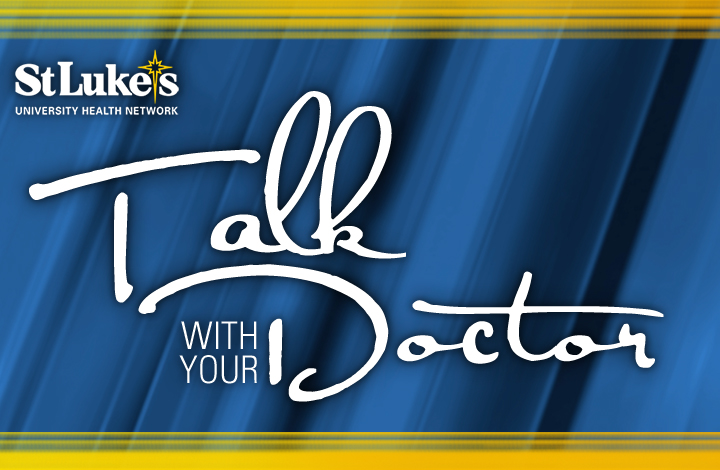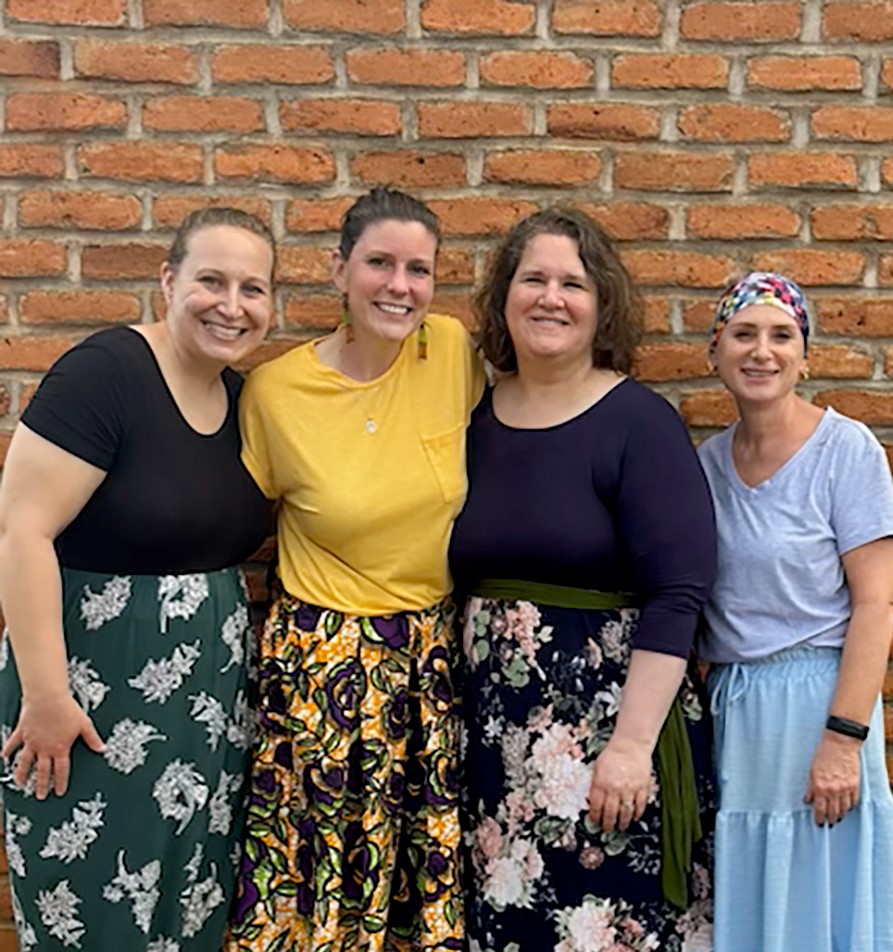St. Luke’s Researching Novel Pain Control ‘Pacemaker’ Called One of Year’s Top Innovations
October 13, 2020

Photo caption: Eurydice Sivells
Number 5 of 10 promising therapies cited by Cleveland Clinic
Pain specialist Farooq Qureshi, MD, is leading research at St. Luke’s to test the safety and efficacy of the first-ever closed-loop spinal cord stimulation technology to reduce chronic, nerve-based pain in the back and leg.
Spinal cord stimulation (SCS) has been an established treatment to relieve chronic neuropathic pain for more than 50 years. However, until now, it has been a one-way communication with the spinal cord.
The Evoke® Spinal Cord Stimulation System is designed to enable a two-way conversation so physicians know how the patient is responding to stimulation in real time. Evoke uses the body’s response to stimulus to personalize each patient’s therapy and can adjust over five million times per day to suit to the patient’s needs.
The first-year results of this research were so promising that the Evoke system was cited as one of the most innovative medical devices for 2020 by the Cleveland Clinic.
The early data from the trial, “Long-term safety and efficacy of closed-loop spinal cord stimulation to treat chronic back and leg pain (Evoke): a double-blind, randomized controlled trial,” was published in Lancet Neurology in December.
The Cleveland Clinic listed the Evoke system number 5 among 10 promising medical developments. Other innovations included a drug for osteoporosis, wider use minimally invasive mitral valve surgery and an oral medication for peanut allergies.
The Evoke system, made by Saluda Medical of Australia, is currently under investigation in the U.S., but has been commercially available in Europe since September 2019. St. Luke’s is the only hospital in the region conducting this research into this investigational device.
Evoke is a closed-loop electrical stimulator similar in design and function to a heart pacemaker, explains Dr. Qureshi, of St. Luke’s Spine & Pain Associates. A tiny metallic wire, or lead, and pacemaker-like energy generator are surgically inserted under the skin. The lead, positioned over the spinal cord, delivers electrical current to override pain signals going to the brain.
“This technology essentially blocks pain signals going to the brain,” Dr. Qureshi explains.
The Evoke system is designed to improve on traditional spinal cord stimulation by featuring a feedback loop. The stimulator is initially programmed for the patient to provide stimulation that controls their pain and is comfortable for them. The stimulator will adjust itself based on responses from the spinal cord to keep the stimulation in this therapeutic window for the patient. Traditional spinal cord stimulation does not do that.
Dr. Qureshi, St. Luke’s principal investigator for this research trial, has entered five patients in this double-blind study. All patients in the trial are implanted with the Evoke device, but neither he nor the subjects know who is receiving the traditional “open-loop” stimulation pattern or the novel “closed-loop” stimulation pattern. But he says several patients appear to have the device “turned on” and are feeling significant pain relief much more than what is typically seen with traditional stimulation. Patients with chronic back pain and sciatica, spinal stenosis or neuropathies that haven’t found relief in medication, injections or other treatments are candidates for this therapy, says Dr. Qureshi.
Eurydice Sivells, a patient of Dr. Qureshi, had the device implanted and activated at St. Luke’s in 2017 after trying a host of treatments, including physical therapy, chiropractic, pain injections and medications, all bringing little relief.
The Northampton Community College student and mother of six had suffered debilitating back and leg pain for a decade following an auto accident. But now she can sit and concentrate pain-free as she pursues a degree in psychology. “I’m ecstatic,” she says.
“I advise anyone who is considering back surgery to first look into this device. And I highly recommend Dr. Qureshi and his team at St. Luke's Spine & Pain Associates. You will be in the very best hands.”
Dr. Qureshi currently prescribes conventional “open-loop” pain stimulators available on the market for about 50 patients each year. He believes many or all of them would benefit from the “dramatic improvement in pain control” he has seen from the Evoke device.
“This technology is game-changing.”
###
Media Contact
Sam Kennedy, Corporate Communications Director, 484-526-4134, samuel.kennedy@sluhn.org
About St. Luke’s
Founded in 1872, St. Luke's University Health Network (SLUHN) is a fully integrated, regional, non-profit network of more than 15,000 employees providing services at 11 hospitals and 300 outpatient sites. With annual net revenue greater than $2 billion, the Network’s service area includes 11 counties: Lehigh, Northampton, Berks, Bucks, Carbon, Montgomery, Monroe, Schuylkill and Luzerne counties in Pennsylvania and Warren and Hunterdon counties in New Jersey. Dedicated to advancing medical education, St. Luke's is the preeminent teaching hospital in central-eastern Pennsylvania. In partnership with Temple University, St. Luke's created the Lehigh Valley's first and only regional medical school campus. It also operates the nation’s longest continuously operating School of Nursing, established in 1884, and 34 fully accredited graduate medical educational programs with 263 residents and fellows. St. Luke's is the only Lehigh Valley-based health care system with Medicare’s five- and four-star ratings (the highest) for quality, efficiency and patient satisfaction. St. Luke’s is both a Leapfrog Group and Healthgrades Top Hospital and a Newsweek World’s Best Hospital. In 2019, three of IBM Watson Health's 100 Top Hospitals were St. Luke's hospitals. St. Luke's University Hospital has earned the 100 Top Major Teaching Hospital designation from IBM Watson Health seven times total and five years in a row. St. Luke's has also been cited by IBM Watson Health as a 50 Top Cardiovascular Program. Utilizing the Epic electronic medical record (EMR) system for both inpatient and outpatient services, the Network is a multi-year recipient of the Most Wired award recognizing the breadth of the SLUHN's information technology applications such as telehealth, online scheduling and online pricing information. St. Luke's is also recognized as one of the state's lowest cost providers.
Read More NewsLatest News


April 17, 2025
SLUHN Employee Competes in Boston Marathon on Monday

April 16, 2025